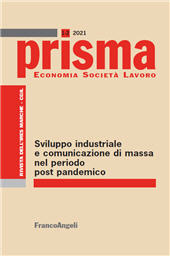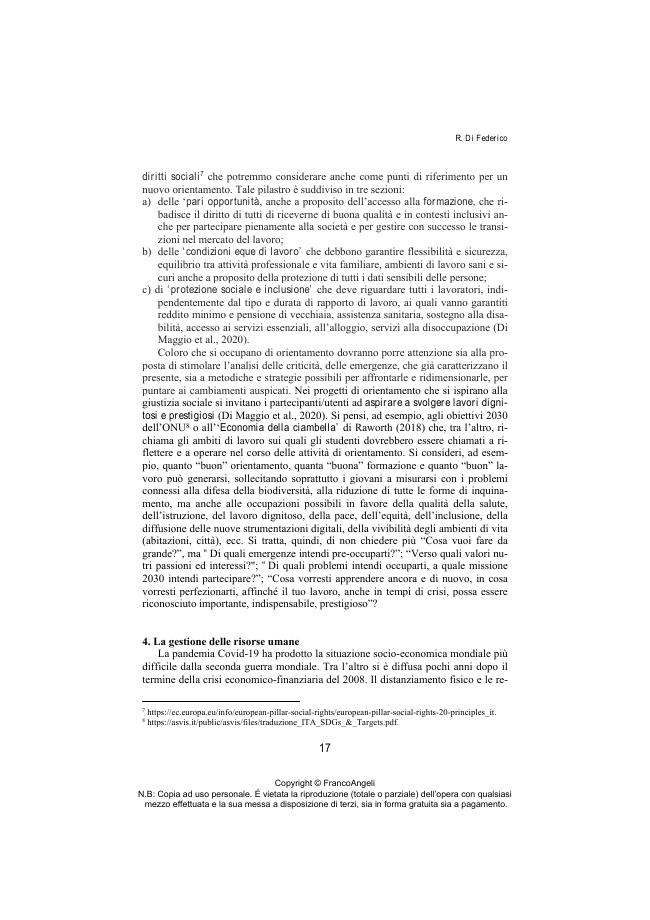Orientamento, nuove competenze e gestione delle risorse umane dopo il Covid-19
11-23 p.
In questo lavoro sono proposte alcune riflessioni sui cambiamenti che la pandemia Covid19 ha determinato nel mondo del lavoro e delle organizzazioni. In particolare, si descrive come l'affermarsi del lavoro ibrido spinga inevitabilmente alla trasformazione non solo dei modelli organizzativi ma anche dei contenuti del lavoro e richieda nuove competenze, da acquisire con attività di orientamento e formazione diverse rispetto al passato. La crisi sanitaria ha indotto i manager delle risorse umane a reinventare molti dei loro ruoli e responsabilità, anche in visione della ripresa economica che dovrà essere di tipo green, così come richiesto dai governi dei vari paesi, soprattutto di quelli economicamente più avanzati. [Testo dell'editore].
This paper offers some reflections on the changes that the pandemic Covid19 has determined in the world of work and organizations. It describes how the emergence of hybrid work inevitably pushes transformations effecting organizational models and content of work. All this requires new skills, to achieve with new orientation and training activities, different from the past. The health crisis has led human resource managers to reinvent many of their roles and responsibilities, in view of the economic recovery that must be of green type, as requested by governments of several countries, especially the most economically advanced ones. [Publisher's text].
Ist Teil von
Prisma : economia, società, lavoro : 1/2, 2021-
Artikel aus derselben Ausgabe (einzeln erhältlich)
-
Informationen
ISSN: 2036-5063
KEYWORDS
- Lavoro ibrido, nuove competenze, orientamento, formazione, gestione green delle risorse umane, Covid19
- Hybrid work, new competences, orientation, training, green HRM, Covid19



